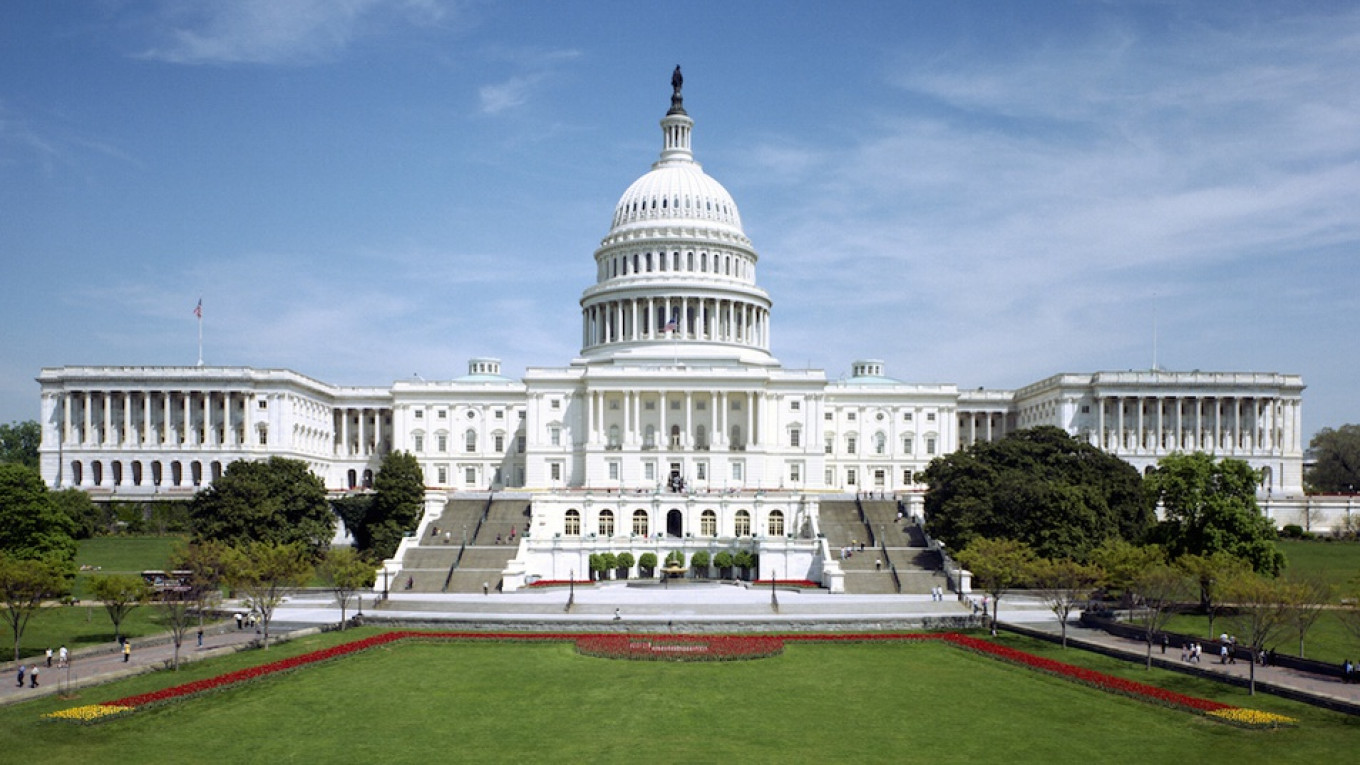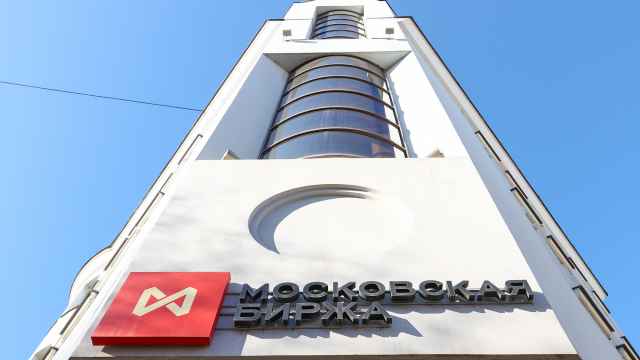The latest U.S. sanctions bill announced earlier this month was published on the website of Congress on Tuesday and includes sweeping restrictions on investment in new Russian sovereign debt and bank operations.
News of the bill sent the ruble tumbling to two-year lows and sparked a wider asset sell-off.
Less than a month after the first Russian-U.S. presidential summit in Helsinki, Kremlin spokesman Dmitry Peskov said on Tuesday that the new sanctions bill “didn't bode well for bilateral relations,” while Prime Minister Dmitry Medvedev warned the U.S. that Russia would regard moves to curb the activities of its banks as a “declaration of economic war.”
Here’s an overview of the key points in the Defending American Security from Kremlin Aggression Act:
— Restricts the activities of seven leading state-run Russian banks in the U.S., including main lender Sberbank;
— Prohibits investors from engaging in transactions with new Russian sovereign debt;
— Restricts investments into Russian energy projects worth more than $250 million;
— Restricts sales of technology or services that could help Russia develop crude oil;
— Limits Russian uranium imports;
— Imposes sanctions on individuals and companies that engage in transactions with any Russian national that has the capacity or ability to facilitate malicious cyber activities;
— Establishes a national center to respond to Russian hybrid threats;
— Requires the state secretary to determine whether to designate Russia a state sponsor of terrorism;
— Commissions a report on the net worth and assets of Russian President Vladimir Putin;
— Reaffirms the U.S. will never recognize the annexed Crimean peninsula;
— Sets a two-thirds requirement for a potential U.S. withdrawal from the North Atlantic Treaty Organization (NATO);
What now?
The full U.S. Congress will not be back in Washington until September, and even then, congressional aides said they did not expect the measure would pass in its entirety. While it was difficult to assess so far in advance, they said it was more likely that only some of its provisions would be included as amendments in another piece of legislation, such as a spending bill Congress must pass before Sept. 30 to prevent a government shutdown.
Reuters contributed reporting to this article.
A Message from The Moscow Times:
Dear readers,
We are facing unprecedented challenges. Russia's Prosecutor General's Office has designated The Moscow Times as an "undesirable" organization, criminalizing our work and putting our staff at risk of prosecution. This follows our earlier unjust labeling as a "foreign agent."
These actions are direct attempts to silence independent journalism in Russia. The authorities claim our work "discredits the decisions of the Russian leadership." We see things differently: we strive to provide accurate, unbiased reporting on Russia.
We, the journalists of The Moscow Times, refuse to be silenced. But to continue our work, we need your help.
Your support, no matter how small, makes a world of difference. If you can, please support us monthly starting from just $2. It's quick to set up, and every contribution makes a significant impact.
By supporting The Moscow Times, you're defending open, independent journalism in the face of repression. Thank you for standing with us.
Remind me later.






